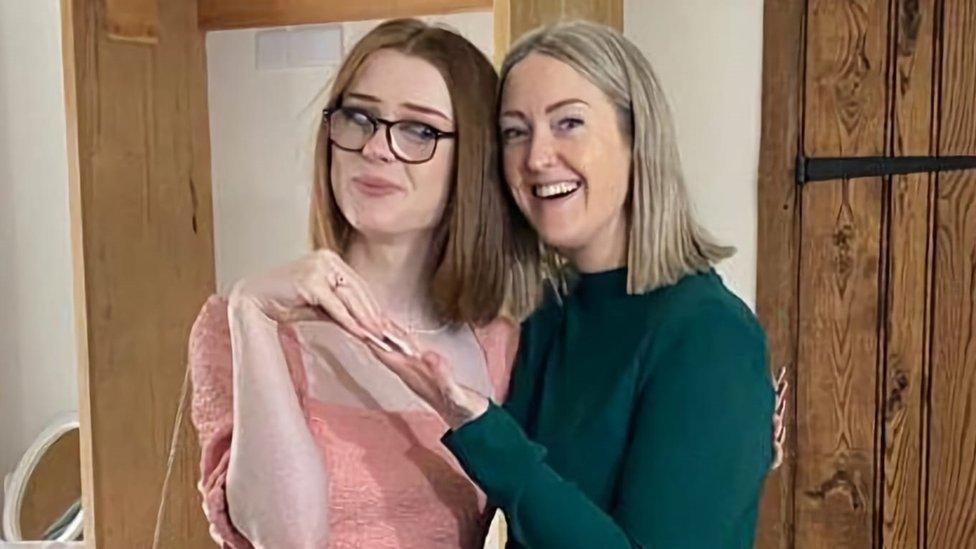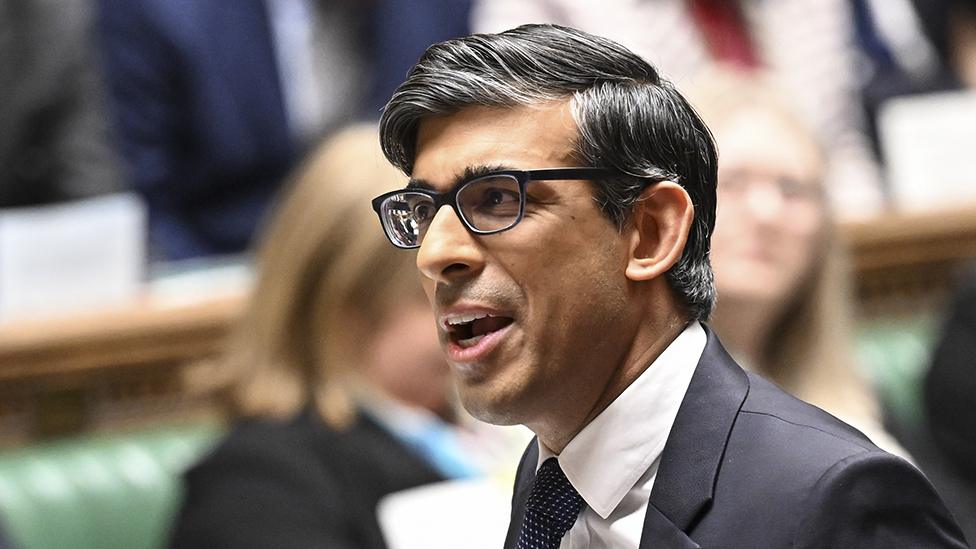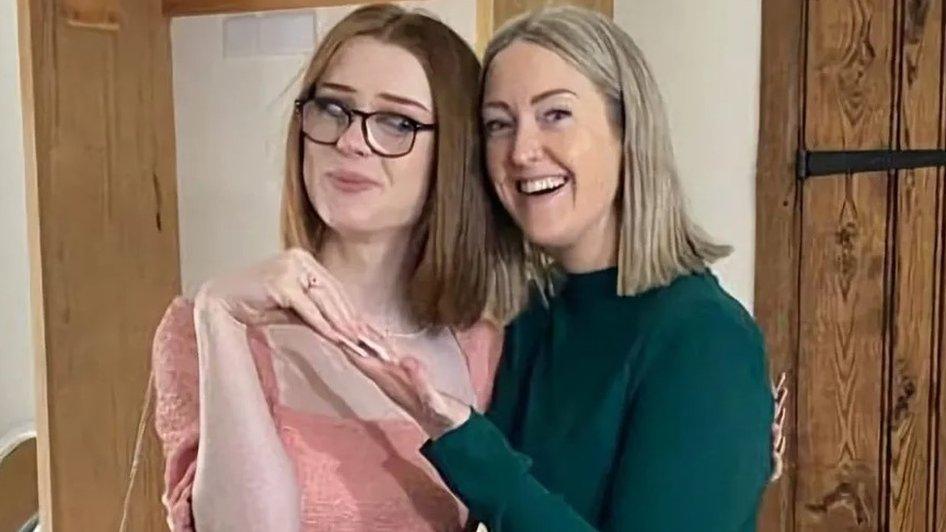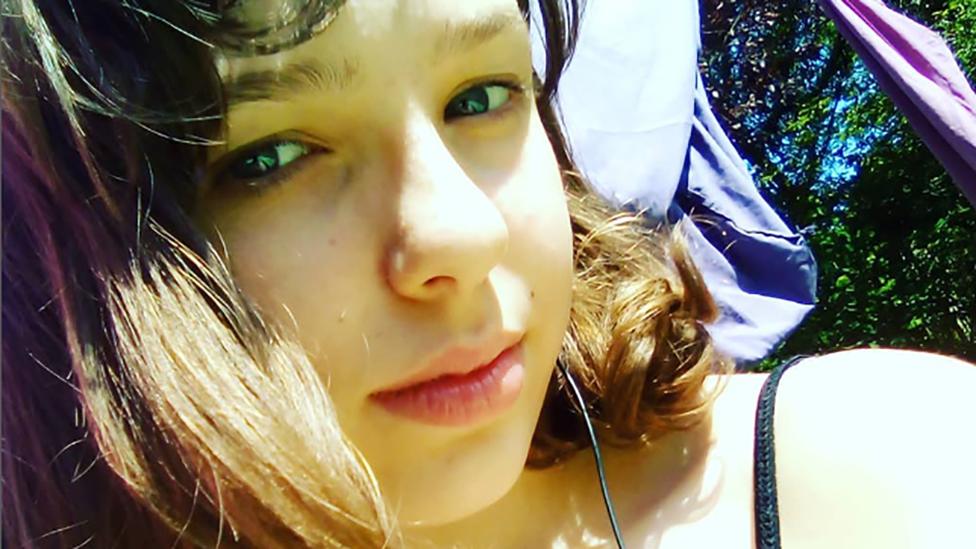Brianna Ghey's mum wants mindfulness taught in schools
- Published

Brianna Ghey was described by her mother as "fearless, strong and brave"
The mother of murdered teenager Brianna Ghey has backed calls to put mindfulness onto the national curriculum.
Sixteen-year-old Brianna, who was transgender, was stabbed 28 times in a "ferocious attack" by teenagers Scarlett Jenkinson and Eddie Ratcliffe.
The pair were handed life sentences on Friday.
Esther Ghey is now part of a campaign to create "a lasting legacy" to her daughter.
She has already launched a local campaign in Warrington, which has raised £50,000 to deliver mindfulness training in schools in the area.
She is now backing a nationwide campaign alongside Warrington North MP Charlotte Nichols, which is calling on government to fund mindfulness programmes in every school in England.
Mindfulness is a calming technique. The charity Mind says it involves noticing what is happening in the present moment, without judgment.
"Brianna Ghey was sassy, beautiful, kind, courageous and authentically herself," Nichols told MPs at Westminster Hall.
"She was loved fiercely and her death was unspeakably tragic.
"No parent should ever have to bury their child, but to have gone through what Esther has and have the drive to seek positive change in the wake of that takes extraordinary courage and compassion."
Ms Nichols said the cost of such a programme would be "modest" and added: "This is an investment worth making for the future."
A spokesperson for the Department for Education said there are currently no plans to introduce mindfulness into every school.
But they said the current Relationships, Health and Sex Education (RSHE) curriculum has a "strong focus" on mental health and wellbeing, and all schools have been offered grants to train a senior mental health lead by 2025.
Ms Ghey was present for the Westminster Hall debate, which took place just hours after Prime Minister's Questions, when Rishi Sunak faced criticism for his comments about Sir Keir Starmer's position on trans people.
The PM had ridiculed the Labour leader for U-turning on the "definition of a woman".
Watch: Sunak makes trans jibe to Starmer at PMQs
Sir Keir, who was due to meet Ms Ghey after PMQs, said: "Of all the weeks to say that, when Brianna's mother is in this chamber. Shame."
Ms Ghey was not in the public gallery for the exchange, but entered later.
When asked whether the prime minister's comment was transphobic, his press secretary said: "I don't accept that at all."
'Drastic action' needed
Ms Ghey has recently called for "drastic action" to protect children.
Mr Sunak has previously said the Online Safety Act is strong enough to protect children online.
But speaking to BBC Breakfast, Ms Ghey said she believes there needs to be further changes to the law, and added that mobile phone companies should take more responsibility.
"I would like to see the law change so that children only have access to children's mobile phones, and that could look exactly the same as an adult's mobile phone but without the ability to download social media apps, and there is software available already," she said.
Ms Ghey has also said children under the age of 16 should not have access to social media apps on smartphones.
Esther Ghey wants a law introduced so under-16s cannot access social media on their phones
However, parents have told the BBC it is "practically impossible" to take smartphones away from children who already have them.
James Turnham, who lives in Hackney, east London, told BBC Radio 4's Today programme he limits the amount of time his children spend on apps, but said: "The pressure is relentless."
Anna - not her real name - told the Today programme she launched a campaign after her daughter tried to take her own life.
Called Just Say No, Stick To Bricks, it calls on parents and schools to restrict smartphone access for children.
Kate Edgcumbe-Rendle, from Worthing, West Sussex, leads online safety workshops in schools and said: "Once those smartphones are handed to our children, it is near enough impossible to get them off them again. The effects are profound."
Related topics
- Published7 February 2024

- Published5 February 2024

- Published2 February 2024

- Published2 February 2024
